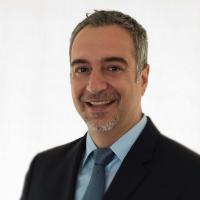Brain Capital Continues to Advance
The Brain Capital Alliance, a public-private-people partnership, was recently launched. Members of the Global Brain Health Institute (GBHI) and Atlantic Fellows community are key supporters of this work.

In the midst of the COVID crisis, a group of neuroscientists, medical doctors, economists, and policy experts came together to develop new concepts, ideas, and tools to use brain science to tackle society’s most pressing problems. Advancing global equity is central to this approach.
Our group, including Atlantic Fellows Erin Smith, Walt Dawson, Ioannis Tarnanas, Agustin Ibañez, and GBHI Co-Director, Ian Robertson, published an outline of our preliminary thinking on brain capital—a framework incorporating brain health and brain skills in the knowledge economy—in Molecular Psychiatry in January 2021. Brain capital is based on the premise that human brains are our greatest asset such that it provides a unified framework to define elements of brain heath, disorder and skills, quantify them, and track them in order to develop new ways to enhance them. The agenda has since significantly advanced through deeper, interdisciplinary research and narratives, broader academic, business and policy networks, and refined measurement to guide all global partners and monitor progress. The Brain Capital Alliance takes this work to the next level.
Rising challenges demand a new approach
Our global community is faced with a number of interrelated challenges which are complex, systemic, and dynamic, ranging from climate change, productivity slowdown, mis- and dis-information, cyber exploitation, mental health and dementia epidemics, educational losses due to COVID, and a fraying of trust in social and political institutions. Collectively, these challenges require a new approach that transcends current—and too often siloed—efforts to address the negative outcomes and harness the brain’s full potential.
Each of us possesses a complex system operating without central control—the brain—which is implicated in the emergence, propagation, and aggravation of these challenges. To get a better handle on these issues, we need to develop the science and understanding of the brain, consider brain capacity as a crucial asset and driver of progress, and apply the lessons and insights into policy, business practices, and civil society advocacy.
The framework of brain capital is based on the assumption that in an era dependent on intellectual capacity, our brains are our greatest asset. Brain capital provides an approach to define brain issues, quantify them, and track them. It can then be applied to policies and investments.
Brain capital has been noted prominently in two recent position statements. One from the World Health Organisation and one from Lundbeck, a central nervous system-focused pharmaceutical company.
Launch of the Brain Capital Alliance
Most recently, the Brain Capital Alliance, a public-private-people partnership was launched via a series of events in Europe. This alliance aims to advance approaches to measurement, investment, and policy related to brain health. The Brain Capital Alliance further integrates brain capital into policy agendas including productivity, climate change, political stability, gender equality, and neurotechnology. The Alliance will raise awareness among public and private leaders for neuroscience-related issues across the lifespan, from early childhood development to youth resilience and cognitive decline in older adults.
A key project, the Brain Capital Dashboard aims to quantify and track brain capital via integrating diverse data sources covering brain health and brain skill metrics. Over time it will be refined and used in policy discussions with policy makers and economists across sectors (from health to social services to education and digital). Specific research labs will be developed to experiment at various scales and will be applied to real world problems such as micro-plastic pollution, the youth mental health crisis, caregiver distress, and disinformation. These platforms will improve the statistical basis and analytical foundation to guide decisions and assess progress. Novel financial instruments will also be explored to unlock additional funding for building brain capital such as bonds, venture capital, and exchange traded funds. Other key GBHI-linked projects are outlined below.
As we look towards the future, it is imperative that brain capital continues to be developed and integrated into policy, business, and society. To sustainably solve the most pressing global challenges and advance equity on a global level, we must place brain capital at the heart of solutions. We must develop ways to use brain science to overcome the most difficult, seemingly intractable global problems.
|
The Brain Health Diplomacy (BHD) Working Group aims to formalize the field of Brain Health Diplomacy and help governments make commitments to brain-based policies and investments. To achieve this dual aim, the BHD working group is supporting the development of a Brain Health Diplomat Toolkit for brain health leaders in order to support the effectiveness of public policy development. Atlantic Fellows Walt Dawson and Laura Booi are co-leads of this Working Group. GBHI community members on this group include Ştefania Ilinca, Rufus Akinyemi, Agustin Ibañez, and Mohamed Salama. With support from the Latin American Brain Health Institute, the Brain Health Diplomat’s Toolkit will be built and tested in the Latin American and Caribbean Region, but will ultimately be scaled globally. GBHI community members involved include Laura Booi, Agustin Ibañez, Walt Dawson, Maritza Pintado-Caipa, Maira Okada de Oliveira, and Ian Robertson.
|
|
The Brain Capital Dashboard Working Group aims to quantify and track brain capital and is constituted by economists, neuroscientists, and physicians. This is seen as a critical project and will subserve future policy innovations. Ian Robertson is a key member of this group.
|
|
GBHI launched a Brain Capital Summer Selective Course as part of the Atlantic Fellows for Equity in Brain Health program curriculum. This course provides fellows the tools to advance brain capital building in their own work and collaborations. Walt Dawson and Harris Eyre are co-leads. Guest speakers are often invited from fields such as diplomacy, economics and philanthropy strategy.
|
|
The Latin American Brain Health Institute (BrainLat), in collaboration with GBHI and the Inter-American Development Bank, have also established a Brain Capital Summer Course. BrainLat is led by Atlantic Fellow Agustin Ibañez.
|
|
Projects are being explored with the Atlantic Fellows working in Africa e.g., Obiora Okoye of the Sub-Saharan African Brain Health Initiative and Mohammed Salama of the American University of Cairo.
|
Authors

Walter Dawson, DPhil
Health Policy Researcher

Harris Eyre
Neuroscientist

Erin Smith
Creative technologist
GBHI Members Mentioned

Rufus Akinyemi, MBBS, MSc, PhD, MWACP, FMCP
Neurologist

Laura Booi, PhD, MA
Social Gerontologist

Ştefania Ilinca, PhD
Health Economist

Maira Okada de Oliveira, PhD
Neuropsychologist

Obiora Okoye, MD, MPH
Global Public Health Researcher

Maritza Pintado-Caipa, MD
Neurologist

Ian Robertson, MPhil, PhD, FTCD
Founding Director, Trinity College Dublin

Mohamed Salama, MBBCH, DTQM, PhD
Neuroscientist

Ioannis Tarnanas, PhD, MSc
Neuroscientist

